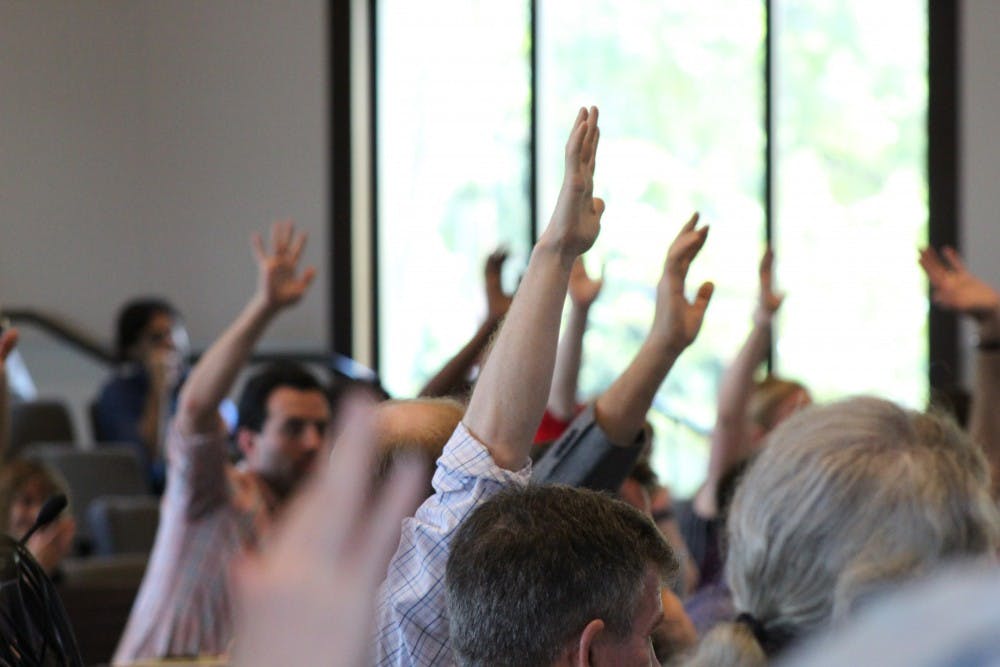The faculty senate failed to pass a resolution that would recommend changes in the university’s attendance policy.
The changes, which entered the full faculty senate after passing the Committee on Scholastic Standards and Petitions, included an increase of classes allowed to be missed by students from 10% to 15%. The resolution also encouraged teachers at USC to maintain their own attendance policies and gave special exemptions for religious holidays.
Professor Adam Schor of the history department was a key leader in drafting the proposed change. He said the current attendance policy does too little to protect students with obligations outside of the classroom.
“The rule that’s in there is, ‘A faculty person can only begin to penalize students after 10% of class meeting time is missed.’ Everything else in the policy, more or less, is optional recommendations,” Schor said.
Schor specifically named a lack of religious protection as a fault in the current policy.
As the convener of the Jewish faculty and staff council, Schor said he was made aware of several cases that spanned years of Jewish students who found difficulty in receiving an excused absence to partake in Jewish holidays Yom Kippur and Rosh Hashanah.
“This situation is simply not addressed by the policy, which leaves faculty with a great deal of flexibility, but also, essentially, the responsibility to either act fairly or not,” Schor said.
This faculty senate vote that failed to pass the change occurred the day after the end of Rosh Hashana on Oct. 1 and a week before Yom Kippur on Oct. 9.
Critics of the new proposal took to the microphone in the faculty senate chambers and cited the change from 10% to 15% as a way for students to miss more class.
“We often teach very large classes of hundreds of students, and attendance is the main tool for getting them there and getting them to learn,” biology professor Joshua Stone said .
Some senate members suggested that the current proposal should be reworked before it could be passed.
“I just think it has lost sight of the initial concern from the Jewish faculty and staff council,” Bethany Bell of the College of Social Work said after making a motion to send the proposal back to committee.
The faculty senate decided to create a new ad hoc committee specifically designed to change the attendance policy.
A semester of college is usually measured in 15 weeks. If a class meets twice a week, students are allowed to miss three days of class under the current 10% guideline. If the rule was changed to 15%, students would be allowed to miss four classes before a professor could reduce his or her grade.
“The great students are going to attend class regardless; the really poor students, they are going to miss class regardless. It’s those middle students that sometimes need encouragement and need help forming good habits,” Stone said.

